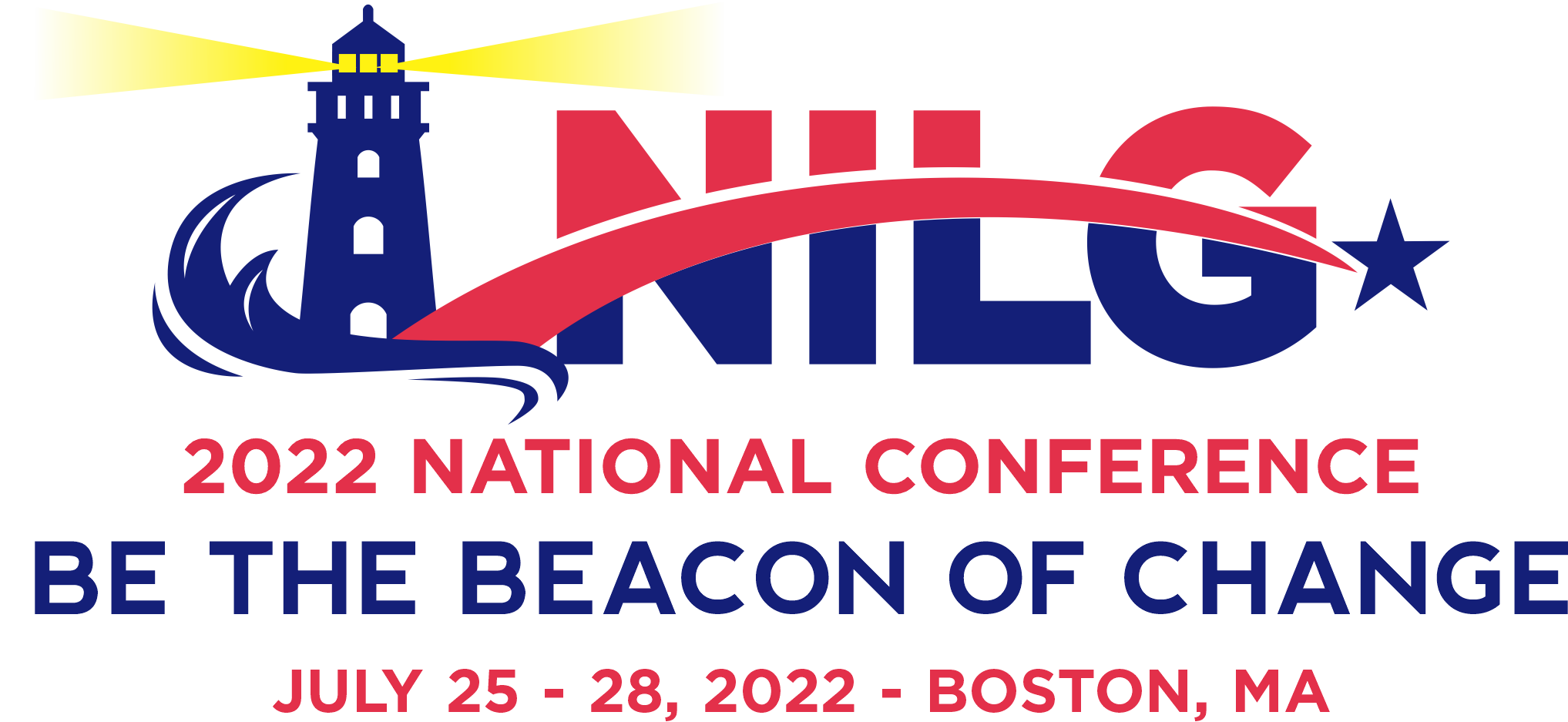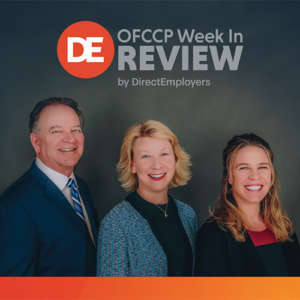 The DE OFCCP Week in Review (WIR) is a simple, fast and direct summary of relevant happenings in the OFCCP regulatory environment, authored by experts John C. Fox, Candee Chambers and Jennifer Polcer. In today’s edition, they discuss:
The DE OFCCP Week in Review (WIR) is a simple, fast and direct summary of relevant happenings in the OFCCP regulatory environment, authored by experts John C. Fox, Candee Chambers and Jennifer Polcer. In today’s edition, they discuss:
- Kansas Workforce Centers Received the NASWA Award for Exceptional Veteran Service
- OFCCP Director Yang Looks to Modernize the Agency
- EEOC Commissioner Sonderling: Commission To Tackle Artificial Intelligence in Employment Decisions
- 12+ Million Job Postings This Year to the NLx in the US!
- Systemic Discrimination is on EEOC’s Radar
- Combating Racist Training in the Military Act of 2021
- EEOC Chair Charlotte Burrows: Systemic Discrimination is on EEOC’s Radar
- All Five Members of the NLRB Are Now Seated
- More Time to Comment on the $15 Minimum Wage for Federal Contractors
- Four OFCCP Regional Directors Provided Updates and Recommendations
- NILG Recap – This Week!
- Access the Disability Equality Index Best Practices Collection
- Employment in U.S. soared in July! The Unemployment Percentage Dropped an Astonishing Half-a-Point to 5.2%. However, Individuals with Disabilities Continue to Be the Hidden Talent Force
- EEOC Listening Session on its Re-Opening Plan
Monday, August 2, 2021: Kansas Workforce Centers Received the NASWA Award for Exceptional Veteran Service

NASWA bestows its Mark Sanders Award each year upon one individual or group in the U.S. that provides exceptional workforce and job market assistance to Veterans, especially those with significant barriers to obtaining and retaining employment.
“We applaud the work being done by the Kansas Local Area II West Workforce Centers as they assist our nation’s heroes in transitioning to civilian life and jobs,” said Scott B. Sanders, NASWA President and CEO (no relation to Mark Sanders).
See the full press release for more details on the excellent work for veterans the Kansas Workforce Team has undertaken.
Monday, August 2, 2021: OFCCP Director Yang Looks to Modernize the Agency
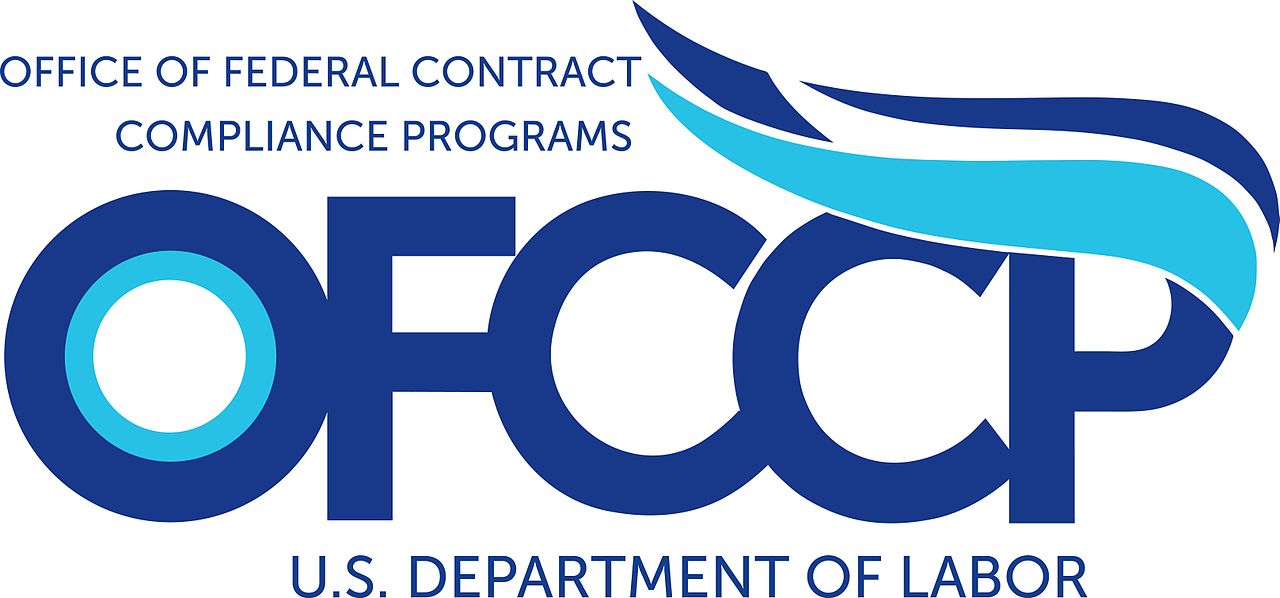
Director Yang started her keynote by announcing that Michelle Hodge, currently the Mid-Atlantic Regional Director, will be the Career Deputy Director effective August 16, 2021. Director Yang also spotlighted the recent addition of Maya Raghu as the Agency’s Deputy Director for Policy.
Like many organizations, the Agency will start a hybrid workforce model effective November 8, 2021. This date is significant to the contractor community because onsite audits will resume in situations “when there is value to going onsite.”
Director Yang expects the OFCCP to “listen, learn, and be a partner” to the federal contractor community. As such, she outlined some of the top priorities of the Agency.
- Rebuilding, hiring, and investing in OFCCP staff. This includes hiring 188 employees and establishing training programs. Also in store is additional tech modernization to allow for national tracking of OFCCP data.
- Revitalizing the Construction Contractor Program. This includes a new construction desk audit, a centralized audit scheduling system, and a centralized system for contractors to report applicable contract awards.
- Reenforcing the option to create Functional Affirmative Action Plans (FAAPs). Since the June 2019 revisions to the Program, the Agency has seen a 10% increase in FAAPs. (The agency favors FAAPs since they typically create larger groupings of similarly situated employees compared to establishment AAP models and thus allow for systemic analyses not typically available through establishment-level AAPs.)
- Streamlining and modernizing processes. Director Yang mentioned looking at the compliance evaluation scheduling mythology, reviewing the evolution to remote work and how this may affect Establishment Reviews. (Note: OFCCP recently updated its FAQs on remote employees) and is also considering how to collect data for individuals who identify as non-binary.)
Monday, August 2, 2021: EEOC Commissioner Sonderling: Commission To Tackle Artificial Intelligence in Employment Decisions

Many companies are preparing to shift to long-term hybrid workforces, and as such, virtual recruiting will continue to shape the broader workforce. Currently, AI software can automate some aspects of resume screening, automate interviews and even be accomplished with the aid of mobile apps. However, Commissioner Sonderling was quick to point out that AI use in the workforce is not new. Almost every Human Resource function, from hiring to firing, can be done with the use of AI.
AI in The Workforce – Good or Bad?
It depends. According to Mr. Sonderling, “Carefully designed and properly used, I believe that AI has the potential to mitigate unlawful discrimination from employment-making decisions.” Numerous studies demonstrate human bias in the hiring process, and AI could be programmed to avoid factoring in items such as age, race, and sex. At the same time, “poorly designed and carelessly implemented, AI can discriminate on a scale in a magnitude far greater than any individual HR professional,” Sonderling stated.
Bipartisan Support
The Trump Administration established the American AI Initiative via Executive Order (EO) 13859, “Maintaining American Leadership in Artificial Intelligence,” in February 2019. This initiative identified five key lines of effort, including increasing AI research investment, unleashing federal AI computing and data resources, setting AI technical standards, building America’s AI workforce, and engaging with international allies. These lines of effort were codified into law as part of the National AI Initiative Act of 2020. A second Executive Order, 13960, “Promoting the Use of Trustworthy Artificial Intelligence in the Federal Government,” outlines Principles to use AI. The Commissioner stressed the inclusion of civil rights in this EO, specifically civil rights protection and consistency with all applicable civil rights laws.
The Biden Administration has not reversed any of the Executive Orders on the study and use of artificial intelligence. As such, Commissioner Sonderling believes AI will remain an area of focus moving forward. In fact, in June of 2021, the Biden Administration launched the National Artificial Intelligence Research Resource Task Force.
EEOC and AI
You may recall our story from December 2020: “Nine Democrat Senators Ask The EEOC To Investigate Hiring Processes Using Artificial Intelligence Tools.” Commissioner Sonderling explained at the NILG conference that the EEOC cannot investigate potential AI discrimination without a formal Complaint. However, individuals discriminated against most likely would never know that what had adversely affected their employment chances was an unlawfully discriminatory electronic tool. The good news is, the EEOC has other tools for enforcement in this area. As such, the Agency would like to hear from employers and innovators in the AI space to help guide their investigations into the use of AI for employment decisions.
Monday, August 2, 2021: 12+ Million Job Postings This Year to the NLx in the US!
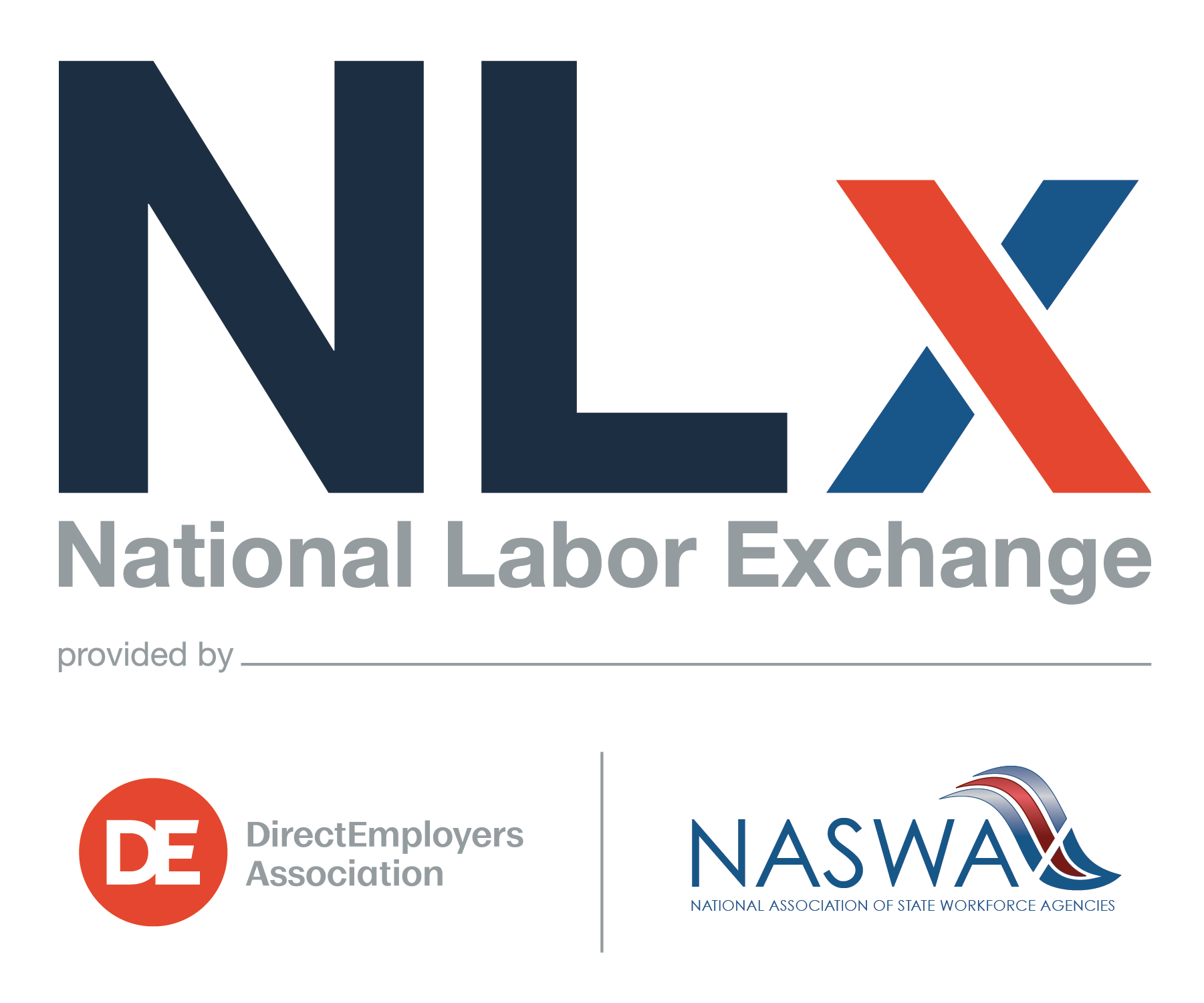
DE maintains and operates the NLx which again typically both “lists” and “posts” over 3 million available jobs per day in the U.S. as the NLx did before March of 2020. (These job “listings” and “postings” increasingly include “work from anywhere” jobs as to which employees can work remote from company offices and which are, as a result, often listed simultaneously in each of the 50 states.) Readers will recall that it was approximately mid-March of 2020 when the COVID-19 pandemic gripped the nation and led seemingly overnight to widespread lay-offs and worksite closures, and inaugurated a broad and long “pause” in hiring within the U.S.
Since January 1, 2021, the NLx has now delivered 12,385,000 jobs to state workforce agencies throughout the U.S. and to the hundreds of labor agencies and diversity jobs sites which partner with DE to receive the NLx’s daily jobs feed.
The NLx remains the only nonprofit, national online labor exchange system in the United States. An employer-driven tool established through a public-private partnership between NASWA and DirectEmployers Association.
The NLx collects and distributes active, unduplicated job postings vetted for authenticity and indexed daily. Over 350,000 employers provide job openings, the bulk of which originate from more than 20,000 corporate career center websites, as well as small-and medium-sized employers which post their job openings directly with the publicly-funded state workforce system.
“The NLx provides the most powerful, collaborative, web-based labor exchange system at no cost to state workforce agencies and employers,” said Scott B. Sanders, NASWA President and CEO. “This has made the NLx a cost-effective and efficient labor exchange tool for our members in their mission to connect employers with job seekers.”
When job seekers discover job openings on the NLx, they are always returned to the point of origin for the position, which leads them to either the employer’s career website or the state workforce agency job board.
“The success of this partnership is thanks to the collaborative efforts of NASWA, our state partners, our nationwide network of cultivated DE&I partners, our veteran partners, and the engaged members of DirectEmployers,” said Candee Chambers, Executive Director of DirectEmployers Association. “This collective effort has helped mold the NLx into what it is today: a trusted and unrivaled job portal that gives job seekers a faster connection to authentic jobs.”
To learn more about the NLx, contact DirectEmployers.
Tuesday, August 3, 2021: EEOC Chair Charlotte Burrows: Systemic Discrimination is on EEOC’s Radar

“The current challenges also present all of us with an opportunity for us to do better. As a country, as employers, and as individuals.”
Reminding the audience that “the EEOC is an agency that has long been able to walk and chew gum at the very same time,” Chair Burrows referenced the six national priorities from its 2017-2021 Strategic Enforcement Plan (See our story from October of 2016) that the Agency is working on; however, she used her time to discuss two overarching issues:
- addressing systemic discrimination, and the
- urgent civil rights implications of the COVID-19 pandemic.
Systemic Discrimination
In addition to investigating and remedying systemic employment discrimination, the Agency will continue to promote workplace diversity, equity, inclusion, and accessibility. To do this, Chair Burrows plans to ramp up staffing with 450 new hires to support all areas, from investigation to educational outreach. Note: In FY2020, the Agency employed fewer than 2000 employees, while in 1980, the Agency employed more than 3300 employees. Chair Burrows did not, however, explain why additional resources were needed (since the EEOC’s Charge inventory was steadily shrinking under the existing staffing levels and had reached historic lows under prior EEOC Chair Dhillon (now Commissioner Dhillon).
Is the EEOC Now a Competitor to the OFCCP for Systemic Work?
Chair Burrows did not discuss how the Commission would seek to investigate systemic employment discrimination since the Commission’s primary mission is to investigate the thousands of individual Charges which flood into the Commission each month. Chair Burrows also did not discuss what implications the Commission’s focus on systemic discrimination would have on OFCCP since President Jimmy Carter in 1978 laid down the architecture of a three-pronged agency civil rights enforcement scheme (along with the U.S. Department of Justice) followed to this day. President Carter’s design of federal civil rights enforcement assigned systemic employment discrimination almost exclusively to the OFCCP. President Carter designed this division of labor among the federal civil rights agencies so that the EEOC would not be distracted from its primary mission to resolve the typically 70,000 to 100,000 individual Charges which annually fuel the Commission’s work docket. President Carter also thought OFCCP was better positioned to investigate “systems” of employment given OFCCP’s establishment-level audits which could review all hiring, promotion, involuntary termination and compensation decisions at a plant or office, and without the need for a formal Charge of alleged unlawful discrimination.
COVID-19 and Civil Rights
The EEOC held a virtual COVID-19 public hearing in April, with the discussion details posted in May. The panel of experts expressed concern for the pandemic’s disproportionate impact on women and people of color in front-line retail and service jobs. They also highlighted data demonstrating that the pandemic had disparate health impacts related to race, gender, disability, and age. The Agency continues to update its technical assistance guide to help employers navigate the intersections of COVID-19, the ADA, the Rehabilitation Act, and other EEO laws.
Chair Burrows wrapped up by mentioning two other areas that the Agency will enforce, LGBTQ protection and pay equity. The EEO-1 Component 2 Pay Data and Hours Worked collection has stopped and momentum to continue it is lacking. However, Chair Burrows reported the Agency is awaiting feedback from the vendor the EEOC commissioned to collect the pay data last year to see what recommendations that vendor may have as to any further pay data collections.
Tuesday, August 3, 2021: Combating Racist Training in the Military Act of 2021
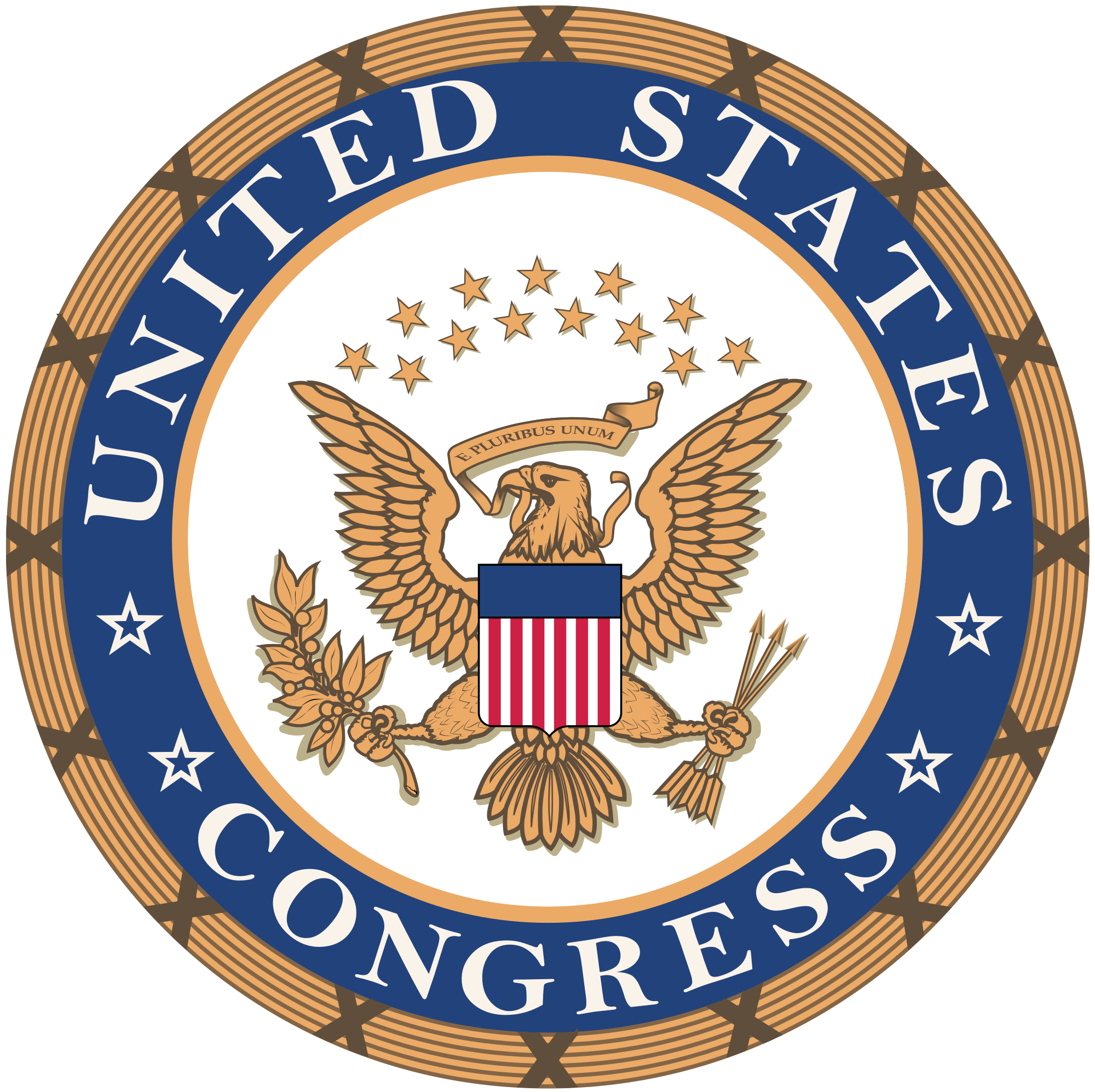
The sister Bill, S.968, “prohibits the Armed Forces and academic institutions of the Department of Defense from promoting specified anti-American and racist theories (e.g., that any race is inherently superior or inferior to any other race).” S.968 gained three new cosponsors, bringing its total to nine Republicans.
The issue of whether to teach “critical race theory” in the U.S. is not going away, but rather political factions appear to be digging in for a prolonged battle for the hearts and minds of Americans on this issue. “Critical race theory,” however defined, appears to be a classic and developing political “wedge issue.” We will stay with this story, for what appears to be a trajectory apex just prior to the 2022 mid-term elections.
Both Bills prohibit:
- including anti-American and racist theories or materials in curricula, reading lists, seminars, workshops, trainings, or other educational or professional settings in a manner that could appear as sponsorship, approval, or endorsement;
- contracting with, hiring, or otherwise engaging speakers, consultants, diversity trainers, and other persons to advocate anti-American and racist theories;
- compelling members of the Armed Forces to affirm or profess belief in anti-American and racist theories; and
- segregating members of the Armed Forces by race in any setting, including educational and training sessions.
Both Bills await action in the Committees to which they have been assigned. Do not look for any Committee action, however. Democrats currently hold, of course, the Chairs of the Committees, in both the House and the Senate, to which the bills have been referred for consideration.
Wednesday, August 4, 2021: EEOC to Host Unconscious Bias Training

More details on this and other workshops are available on the EEOC Training Institute website.
Wednesday, August 4, 2021: All Five Members of the NLRB Are Now Seated
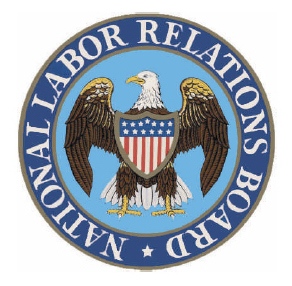
“I am honored to be the first Black woman to serve as a Board Member during this critical moment in our country’s history and hope that my appointment will be an inspiration to others. It is essential that the NLRB and other governmental agencies be representative of our country’s diverse workforce,” said NLRB Board Member Gwynne Wilcox. “As I return to the National Labor Relations Board, I am both excited and proud to work alongside dedicated colleagues at an agency that has the power to impact workplaces and the lives of workers, unions, and employers through enforcing the National Labor Relations Act.”
Because Ms. Wilcox is stepping in to complete the existing term of former NLRB Member Pearce (vacated in 2018), Member Williams’ term will not be for a full five-year term but instead will expire in only two years, on August 27, 2023.
Wednesday, August 4, 2021: More Time to Comment on the $15 Minimum Wage for Federal Contractors
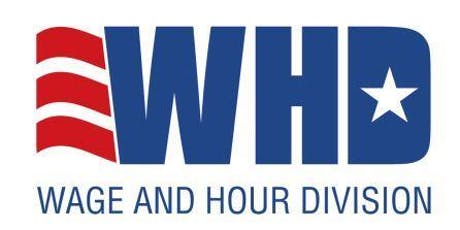
There are currently 22 comments both for and against the proposed $15.00/hr minimum wage for federal contractors.
Submit comments on or before August 27, 2021.
Wednesday, August 4, 2021: Four OFCCP Regional Directors Provided Updates and Recommendations

The Regional Directors of the OFCCP wrapped up the NILG conference by providing updates from their respective regions and recommendations for federal contractors. Melissa Speer kicked off the panel discussion with a national update that in FY 2020 [this is last year, the last full year of the Trump Administration: ended September 30, 2020], the OFCCP closed 1,320 Compliance Evaluations, settled 71 audits involving allegations of alleged unlawful employment discrimination, and recovered more than 31.8 million dollars in financial remedies for over 68,000 applicant and employees. So far in the almost completed current Fiscal Year FY 2021 (OFCCP is 10 months into FY 2021which ends in less than two months), the Agency has resolved 94 audits with Conciliation Agreement settlements, including 30 settlements alleging unlawful employment discrimination valued at over 20 million dollars in financial remedies.
Southwest & Rocky Mountain Region (SWARM) (Dallas)
Melissa Speer also provided the following updates for the SWARM region for the last two years during the transition from the Trump Administration to the Biden Administration. Ms. Speer began with her results from FY 2020 (almost a year ago…FY 2020 ended September 30, 2020 during the last full year of the Trump Administration).
- The Region closed 21 audits with allegations of unlawful employment discrimination.
- Six (29%) of the 21 audits included findings of compensation discrimination.
- Ten (48%) of the 21 audits were resolved by way of Early Resolution Conciliation Agreements (ERCAs) (see our story from December 2018).
- The closed audits resulted in back pay totaling $11,496,241 for over 39,000 class members, 65% of whom were Black, and over half were female.
For FY 2021 (the current Fiscal Year) in the 10 full months to date, the Region has closed seven discrimination audits leading to 2.5 million dollars in back pay, four of which alleged compensation discrimination. Ms. Speer drove home her concerns on pay equity and her Region’s shift from findings of primarily hiring discrimination to compensation discrimination despite the very small numbers involved.
Pacific Region (San Francisco)
Pacific Region Director Jane Suhr was not in attendance; however, Melissa Speer provided updates on her behalf. The Pacific Region also has employers using ERCAs to close cases quickly and early. FY 2020, combined with FY 2021 to date (i.e., 22-month reporting window), has resulted in:
- the resolution of 11 systemic discrimination audits with financial remedies of over 12 million dollars;
- four of the 11 audits alleged hiring discrimination; and
- seven of the 11 audits alleged compensation discrimination.
Southeast Region (Atlanta)
Aida Collins, newly promoted to her role (see our story from June 4th), spotlighted her Region’s trends. Her team decreased aged audits from 20% to 3% in the last five years and closed 49 audits alleging systemic discrimination. Of these 49 audits, 71% alleged hiring discrimination and 23% alleged compensation discrimination. The industries most frequently signing Conciliation Agreements in the Southeast Region have been food distribution and manufacturing due to the significant levels of entry-level hiring.
The Region currently has six university reviews underway and is sharing information across regions when applicable as to all audits.
Mid-Atlantic Region (Philadelphia)
Michele Hodge spoke on behalf of the Mid-Atlantic Region; however, she will be leaving the Region this month to join the National Office as the Career Deputy Director (see the announcement above in Director Yang’s speech). The Mid-Atlantic Region has five offices, currently with 49 employees, 31 of which are Compliance Officers. Ms. Hodge stated that although it is a small Region, they receive “a high level of complaints.” For FY 2021 to date, the Region has secured 3.8 million dollars in settlements. The Region expects to complete all of its Construction Compliance Checks this year.
Midwest Region (Chicago)
Carmen Navarro was not in attendance; however, Michele Hodge provided updates on her behalf. The Midwest Region, previously OFCCP’s largest Region, currently employs a robust 68 employees (~16% of OFCCP’s 420 on-roll employees). The Region has completed all of its Construction Compliance Checks and is wrapping up the remaining Section 503 and VEVRAA Compliance Reviews previously published in prior OFCCP CSALs.
Northeast Region (NY)
Diana Sen, currently detailed to serve an interim term as the Acting Deputy Director in the National Office (pending Michele Hodge’s arrival later this month), spoke on behalf of the Northeast Region. The Region is focused on aged audits and has scheduled most of the companies on the previous active CSALs. Echoing the others, compensation discrimination is and will continue to be an area of scrutiny. Ms. Sen also plugged and encouraged companies to enter into ERCAs with OFCCP.
Recommendations
The Directors shared several recommendations, including:
- be proactive, review data regularly;
- make sure everyone involved knows and understands the company’s affirmative action program’
- document the company’s hiring process;
- use accurate disposition codes;
- explain upfront any statistical disparities in selections;
- regularly assess the company’s outreach; and
- use the interactive process for accommodation requests.
Wednesday, August 4, 2021: NILG Recap – This Week!
We would be remiss if we did not report on the many other highly informational presentations at this year’s National Industry Liaison Group’s Conference! Join the Week in Review (WIR) team as we unpack not only the stories mentioned in this week’s WIR but also great takeaways from:
- OFCCP Ombudsman Marcus Stergio’s “Meet the Ombudsman” presentation, and
- OFCCP Director of Enforcement Robert Lajeunesse and his colleagues who discussed “Assessing Promotions and Placement in a Post-Pandemic Labor Market.”
- John Fox’s Plenary presentation to the NILG explaining where the agency is, how it has gotten here, where it is going and why OFCCP is both starting and completing so few audits these days.
DE’s Week In Review Team NILG Recap Event
Thursday, August 12, 2021
2:00 PM EST
Register online
The 2022 NILG conference will be in Boston – we hope to see you there!
Friday, August 6, 2021: Access the Disability Equality Index Best Practices Collection
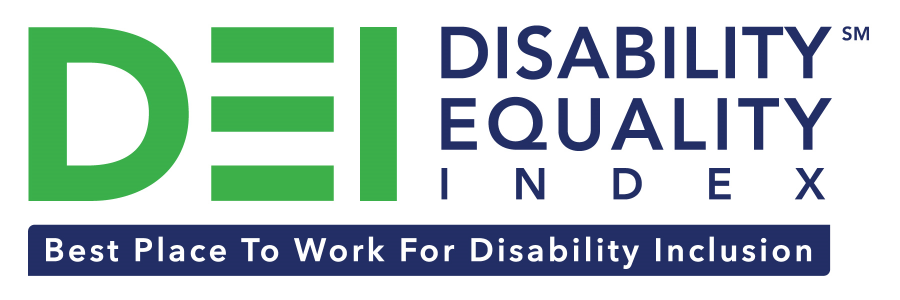
To share more practices to help businesses learn from each other, Disability: IN has produced the Best Practices Collection, a new resource of over 170 practices as reported by DEI participating companies and captured through Disability: IN’s consulting and conference experiences.
“This new collection is a compilation that showcases leading examples and promising practices and is designed for all companies – from the company that is just starting their disability inclusion journey to leading practitioners. The collection also includes the ability to sort via industry.”
~ Disability: IN
2022 Timeline for the DEI Award
- July 13, 2021: DEI Registration opened
- January 28, 2022: DEI Registration closes
- January 31, 2022: Registered companies start receiving access to the benchmark
- April 8, 2022: Final company benchmark responses due
- June 2022: DEI benchmark scores finalized
- July 20, 2022: Top-scoring companies (score of 80 or above) announced and DEI Report available
Friday, August 6, 2021: Employment in U.S. soared in July! The Unemployment Percentage Dropped an Astonishing Half-a-Point to 5.2%. However, Individuals with Disabilities Continue to Be the Hidden Talent Force
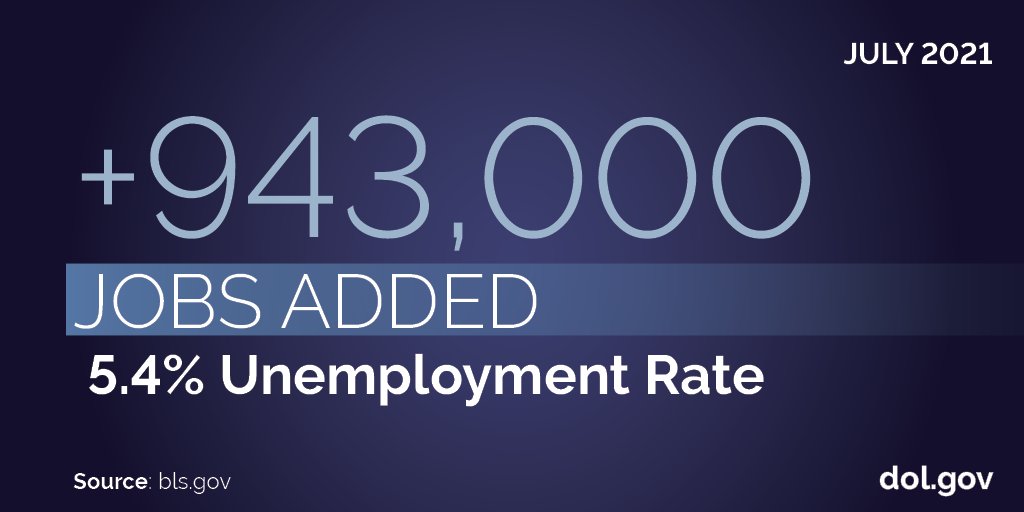
These are the kinds of numbers economists (and especially the Biden Administration) were looking for to confirm that the American jobs recovery process was continuing to percolate. Four more months at that near record monthly hiring rate, however, would be needed to break the back of unemployment still higher than before the COVID-19 pandemic when the Trump Administration reached 50-year lows in unemployment.
In July, 5.2 million persons still reported that they had been unable to work because their employer closed or lost business due to the COVID-19 pandemic – that is, they did not work at all or worked fewer hours at some point in the last four weeks due to the COVID-19 pandemic. On the bright side, though, the number of those unemployed dropped by almost 1 million workers, down from 6.2 million in June.
Companies should target recruitment efforts towards individuals with disabilities. Get your team prepared with the DisabilityRecruiter© Certification course offered through the DE Academy!
| The Employment Situation – July 2021 | |||
|---|---|---|---|
| Unemployment Rate | July 2021 | June 2021 | July 2020 |
| National (Seasonally adjusted) |
5.4% | 5.9% | 10.2% |
|
Women (20+) |
4.8% 8.2% 5.3% 6.6% 5.4% 5.0% |
5.2% 9.2% 5.8% 7.4% 5.9% 5.5% |
9.2% 14.4% 11.9 % 12.7% 9.4% 10.4% |
| Veterans (Not seasonally adjusted) |
4.0% | 4.8% | 7.9% |
| Individuals with Disabilities (Not seasonally adjusted) |
12.1% | 10.9% | 14.3% |
Friday, August 6, 2021: EEOC Listening Session on its Re-Opening Plan

The Goal
The Agency seeks to learn:
- how people generally interact with EEOC staff (in person, online, videoconference, telephone, etc.);
- how the Agency’s increased telework may have impacted those contacts;
- which Agency interactions were enhanced by the use of online/virtual formats;
- whether any particular Agency interactions should be conducted in person;
- whether specific communities or demographic groups lack online access or face particular challenges to interacting with the EEOC online; and
- whether there are any relative advantages/disadvantages to having more smaller EEOC offices across the country vs. fewer larger offices with more centralized services.
Event Details
Thursday, August 19, 2021
1:00 PM EST
Register online
THIS COLUMN IS MEANT TO ASSIST IN A GENERAL UNDERSTANDING OF THE CURRENT LAW AND PRACTICE RELATING TO OFCCP. IT IS NOT TO BE REGARDED AS LEGAL ADVICE. COMPANIES OR INDIVIDUALS WITH PARTICULAR QUESTIONS SHOULD SEEK ADVICE OF COUNSEL.
SUBSCRIBE.
Compliance Alerts
Compliance Tips
Week In Review (WIR)
Subscribe to receive alerts, news and updates on all things related to OFCCP compliance as it applies to federal contractors.
OFCCP Compliance Text Alerts
Get OFCCP compliance alerts on your cell phone. Text the word compliance to 55678 and confirm your subscription. Provider message and data rates may apply.


